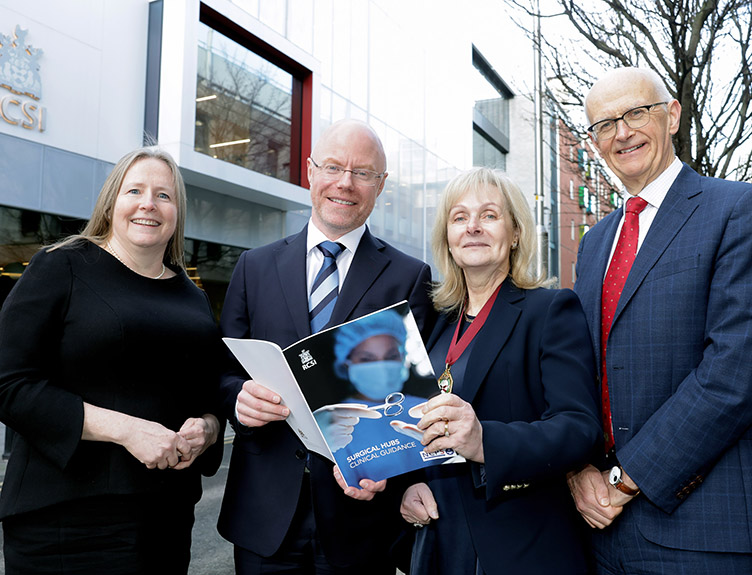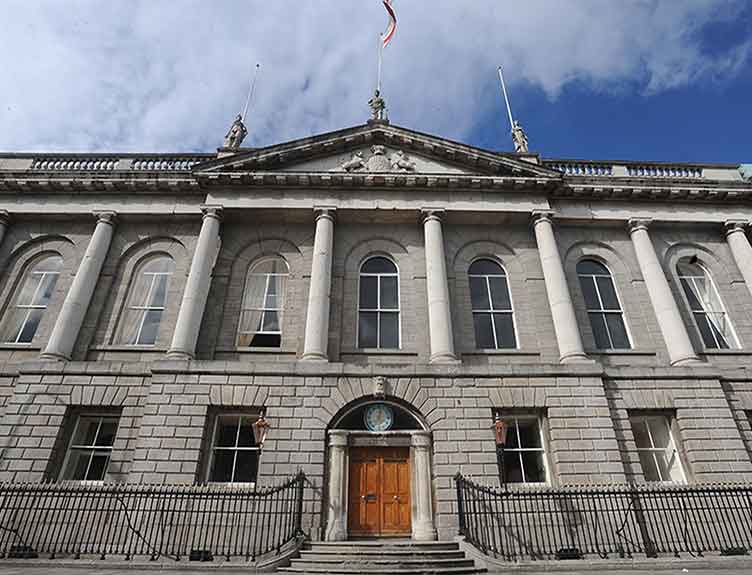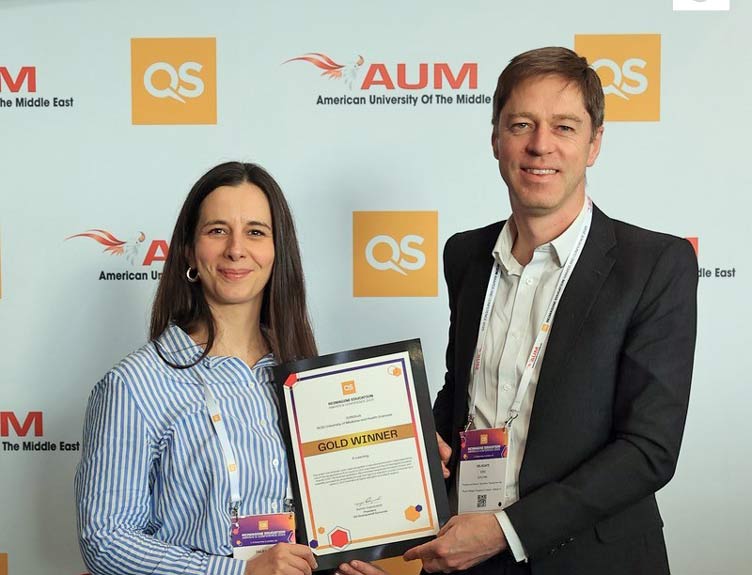Clinical Guidance for Surgical Hubs published

The guidance aims to support the speedy and sustainable introduction of Surgical Hubs to reduce waiting times for scheduled care.
Clinical Guidance for Surgical Hubs has been published by the Elective Surgical Hubs Clinical Design Group. The guidance is aimed at supporting the timely implementation of the six new surgical hubs which are intended to reduce waiting lists for scheduled surgical care.
The guidance was welcomed by Minister for Health Stephen Donnelly during an address to the annual Health Service Quality Improvement and Innovations Conference, hosted by the RCSI National Clinical Programmes in Surgery, Trauma and Orthopaedics and Emergency Medicine.
Surgical hubs are ring-fenced surgical facilities containing operating theatres, treatment rooms, and other services necessary to deliver ambulatory, minor and day case procedures. They are designed to provide high-volume, low-complexity care. The development of the hubs is a major step forward in the separation of unscheduled and scheduled care which is critical to reduce the adverse impact of winter emergency department surges on surgical activity.
The clinical guidance document covers areas such as patient pathways, sustainability, infrastructure, staffing, patient safety, referrals, escalation plans and clinical governance.
According to the Clinical Design Group, it is essential that all existing surgical capacity in existing Model 2 and Model 3 hospitals is protected so that the surgical hubs are able to provide additional capacity to meet the very high levels of demand.
Extra capacity
The Group is recommending that, in the short term, in order to deliver the extra capacity as speedily as possible, the centralised model used by the National Treatment Purchase Fund is used as a template for managing patient access to the surgical hubs. This is a well-established and quality-assured system and would ensure equity of access and waiting times, irrespective of patient location or hospital of origin.
Local governance and ownership of surgical hubs is key to their rapid development, as is integrating with existing services such as radiology, infection control, health and safety, medical records, portering and administration, say the Group.
While emergency escalation of care should be very rare, it is essential that seriously ill patients and accompanying staff can move efficiently to an ambulance bay if a patient needs to be transferred and resuscitation trolleys should be easily accessible.
Further recommendations include:
- The establishment of new patient pathways to ensure a sufficient flow of patients into each surgical hub
- Protocols for nurse-led discharge should be in place
- Referral letters or booking forms should provide sufficient information to allow for administration to be completed before admission, or nurse led pre-assessment and pre-admission as appropriate.
- Ensuring all consultation rooms support virtual clinics to reduce unnecessary travel for patients and enable optimal use of the new infrastructure.
Significant step forward
The Elective Surgical Hubs Clinical Design Group was chaired by Professor Deborah McNamara, RCSI Vice-President and co-lead of the National Clinical Programme in Surgery and Professor Frank Keane (Past President, RCSI). The work was commissioned by the HSE Chief Clinical Officer Dr Colm Henry.
Minister Donnelly said: “I was delighted to launch the new Surgical Hubs Clinical Guidance document here at RCSI this morning. This document, with its guidance recommendations on issues for surgical hubs such as surgical hub infrastructure, clinical governance, and patient pathways, is a significant step forward in the delivery of the surgical hub programme.
“Progress is being made, with work underway at Mount Carmel, a contractor appointed to deliver the hub in Swords, planning permission granted for Merlin Park in Galway, and decisions expected shortly on planning permission for Cork, Limerick and Waterford. The surgical hub at the Reeves Centre in Tallaght has been very successful in reducing waiting lists and treatment times and I look forward to the new hubs underway delivering equally positive results.”
Professor Deborah McNamara said: “We are really pleased to see progress in the development of new surgical hubs. The expansion of elective surgical services, through these new hubs, will help improve access to timely scheduled surgical care for patients requiring straightforward procedures. With the new health regions being established, there is a real opportunity to consider the optimum structures and networks for the delivery of scheduled and unscheduled surgical services across each region, in keeping with local demand, capacity, infrastructure and geography.
“We hope that this clinical guidance will support the delivery of the six surgical hubs as early as possible, so that they can begin to provide surgical care and reduce waiting times for patients,” added Professor McNamara.



